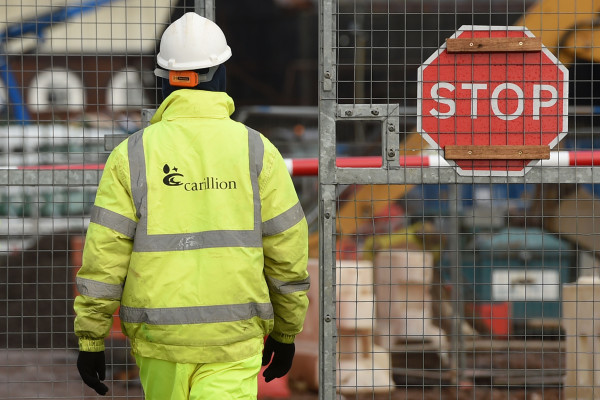

This information was disclosed today (13 February) by MPs on the work and pensions committee and the business, energy and industrial strategy (BEIS) committee, which have been grilling the accountancy firms over their role in the process which lead to the liquidation of the UK government's biggest contractors.
According to Labour MP Frank Field, chair of the work and pensions committee, “the image of these companies feasting on what was soon to become a carcass will not be lost on decent citizens”.
He said: “We saw at the end of our evidence session that the former directors of Carillion are, unlike their pensioners, suppliers and employees, alright.
“These figures show that, as ever, the Big Four are alright too. All of them did extensive – and expensive – work for Carillion.”
In a parliamentary hearing last week, Keith Cochrane, former boss of collapsed Carillion, denied the company’s board was prioritising the payment of dividends over making pension contributions.
Carillion's defined benefit (DB) pension schemes are all either in the retirement fund of last resort, the Pension Protection Fund (PPF), or will soon enter it, meaning many members face a cut to their pension provision.
Carillion has 13 final salary schemes in the UK with more than 28,500 members, and a deficit of £587m at the end of July.
After unsuccessful talks with its lenders and the UK government, Carillion made an application on 15 January to the High Court for compulsory liquidation.
Carillion, which employs about 43,000 people, has been struggling for several months, issuing a profit warning last year that sank its share price – which has fallen from more than £2 a year ago to about 14.2p just before it went into administration.
According to the analysis published by the MPs, all Big Four have provided some kind of work in relation to Carillion.

Mr Field said: “PwC managed to play all three sides – the company, pension schemes and the government – to the tune of £21m and are now being paid to preside over the carcass of the company as special managers.”
According to a letter from the official receiver, PwC was the only option to appoint as special managers to administrate the insolvency because they were the only one of the ‘oligopoly’ of firms who would not have an immediate conflict of interest, the committees said.
Mr Field added: “It was perhaps telling that, with their three fellow oligarchs conflicted, PwC were appointed to this lucrative position without any competition.”
Regarding KPMG, which signed off Carillion’s latest accounts and is now being investigated by the Financial Reporting Council (FRC), the committees said that “they do not accept any suggestion of blame but assert they conducted their work ‘appropriately and responsibly’”.
The MPs said, from the firm’s response, KPMG reduced their total audit fees from £1.8m to £1.4m between 2008-2016, despite their hourly fees increasing over that period.
“Does that could suggest that they were cutting back on the work they were performing, relying on past assurances they had?” the committees question.
Representatives from the firm will appear before the committees in a hearing on 22 February.
Labour MP Rachel Reeves, chair of BEIS committee, said: “KPMG has serious questions to answer about the collapse of Carillion.
“Either KPMG failed to spot the warning signs, or its judgement was clouded by its cosy relationship with the company and the multi-million pound fees it received.
“For the sake of all those who lost their jobs at Carillion and in the interests of better corporate governance, KPMG should, as a bare minimum, review its processes and explain what went wrong.”
maria.espadinha@ft.com



